Hybrid cars continue to evolve as their technology improves, so naturally, the status quo will change. Also, when looking for a hybrid, your most likely candidates are the Japanese brands, in which most of them went big with this electrification measure.
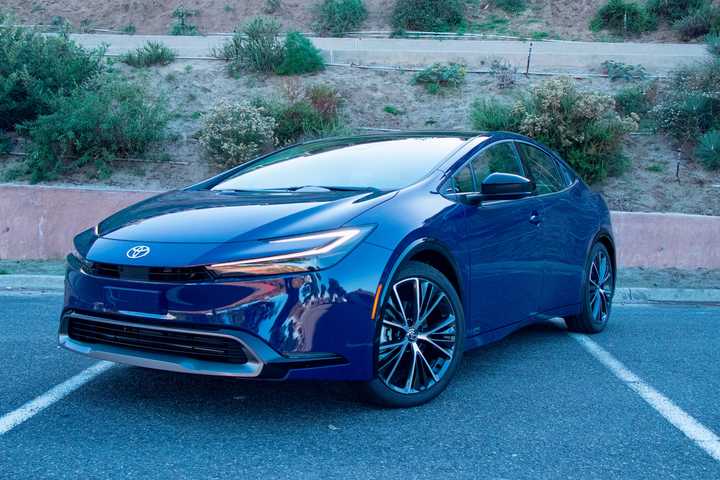

Base Trim Engine
2L I4 Hybrid
Base Trim Transmission
CVT
Base Trim Drivetrain
Front-Wheel Drive
Base Trim Horsepower
150 HP @6000 RPM
Base Trim Torque
139 lb.-ft. @ 4400 RPM
But if fuel efficiency in a sedan body style is your outright priority, which of the Japanese hybrid cars is the most efficient in 2025? Has the status quo changed, or have familiar names remained untouchable? That’s exactly what we’re about to find out in this article.
To give you the most up-to-date and accurate information possible, the data used to compile this article was sourced from various manufacturer websites and other authoritative sources, including iSeeCars.
2025 Toyota Prius – Familiar Dog, Familiar Tricks
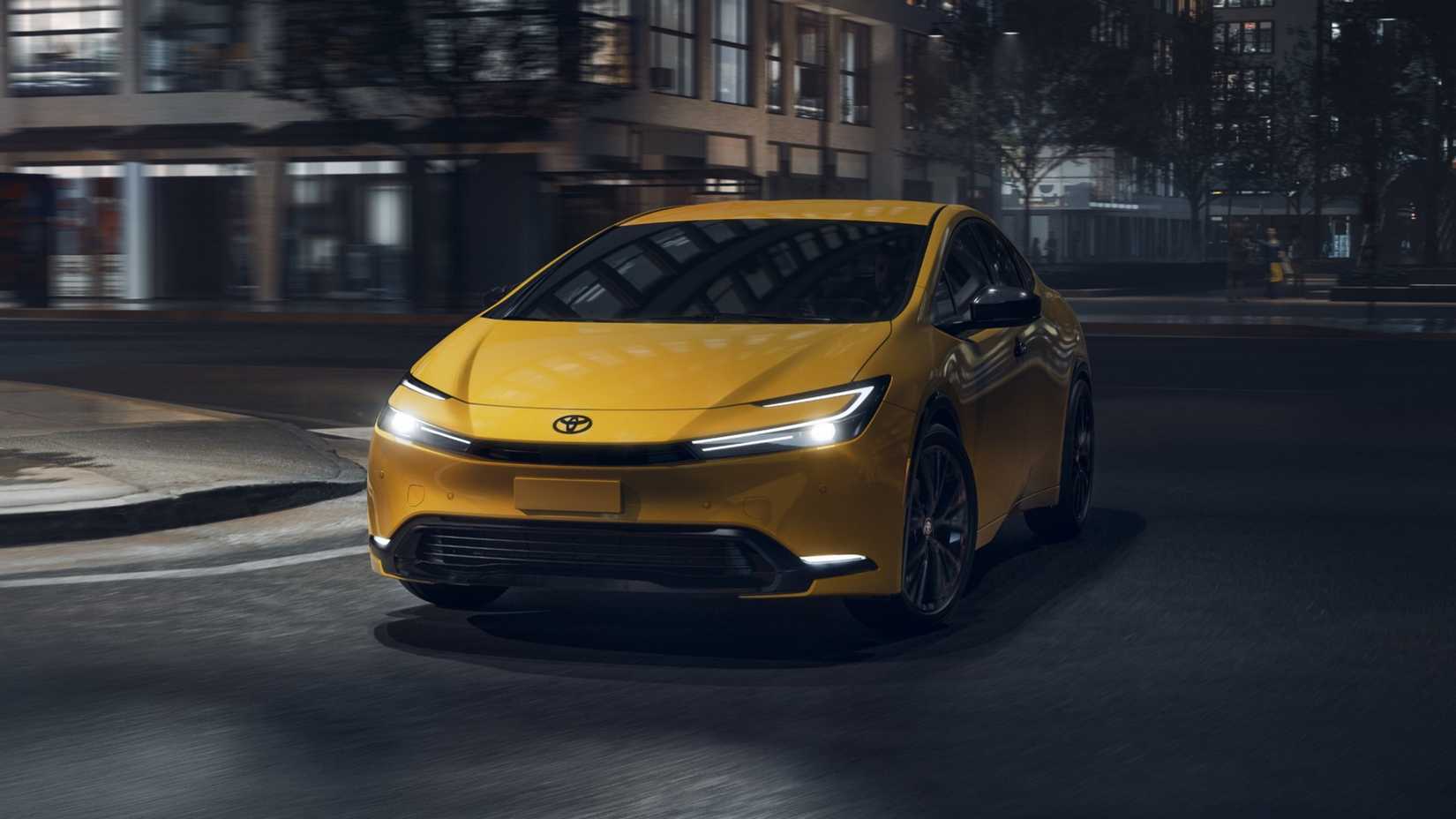
Front 3/4 shot of 2025 Toyota Prius Nightshade in yellow driving on city street
Toyota
The most efficient Japanese hybrid sedan in 2025 is a familiar dog using familiar tricks. It’s the 2026 Toyota Prius, whose unparalleled efficiency has remained class-leading since this generation’s debut in 2023.
As High As 57 MPG Combined
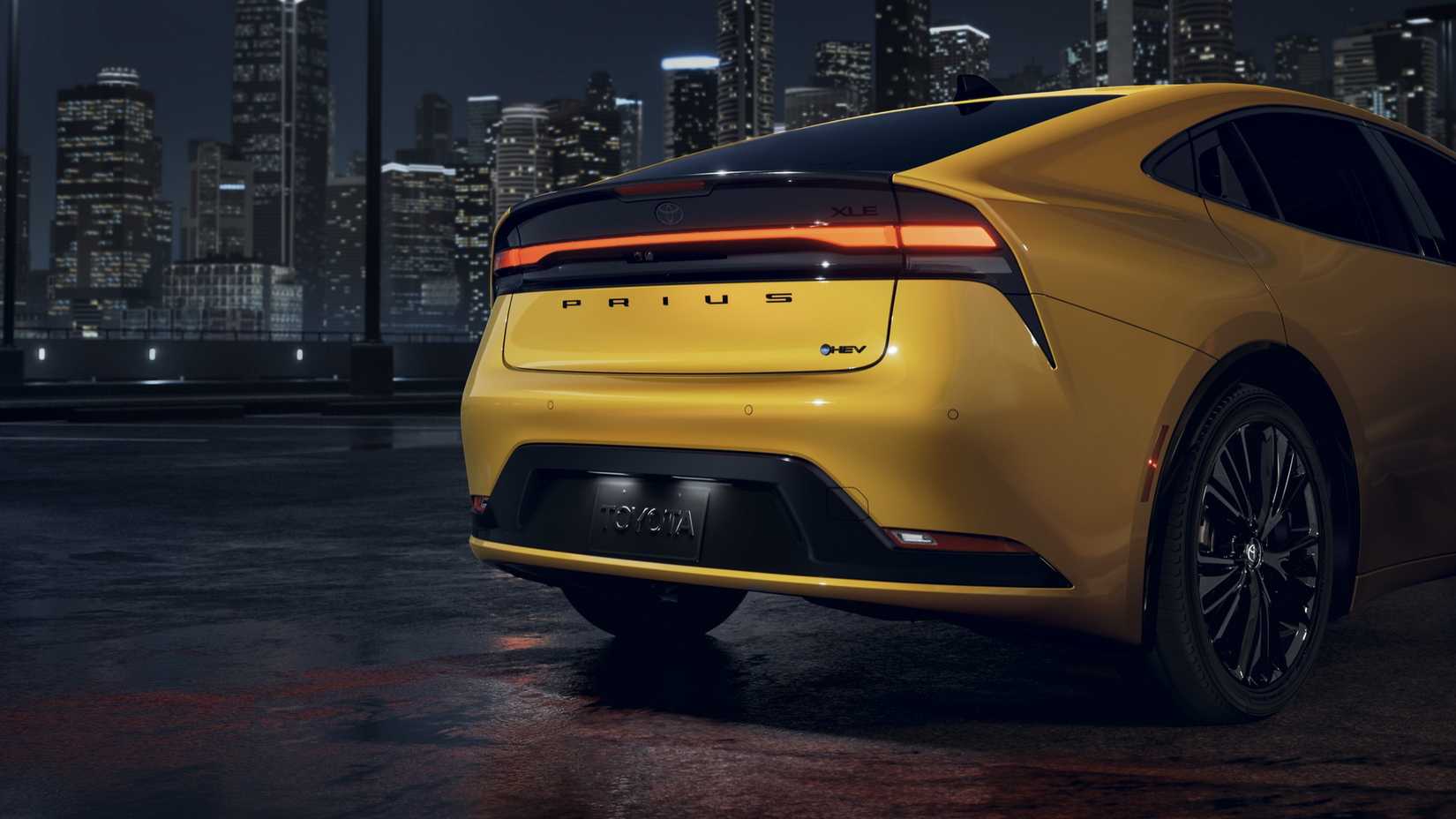
2025 Toyota Prius rear shot
Toyota
Just how efficient is the Prius in 2025? Well, ever since its debut, the best that a Prius could offer is a combined 57 MPG, as rated by the EPA. This makes it America’s most efficient sedan overall. This gives you an impressive driving range of 644 miles. However, as you’d also imagine, the most efficient version of the Prius does carry some caveats—at least when it comes to styling.
Wheels dramatically affect efficiency, so for the most efficient Japanese sedan you can buy in 2025, you’ll have to settle for the base Prius and its 17-inch wheels. To be fair, that will make the ride extremely cushioned versus the 19-inch wheels of every other variant. Step up to the three higher trims with 19-inch wheels, and fuel economy drops to a still-efficient combined 52 MPG.
But, There’s Something More Highway Efficient
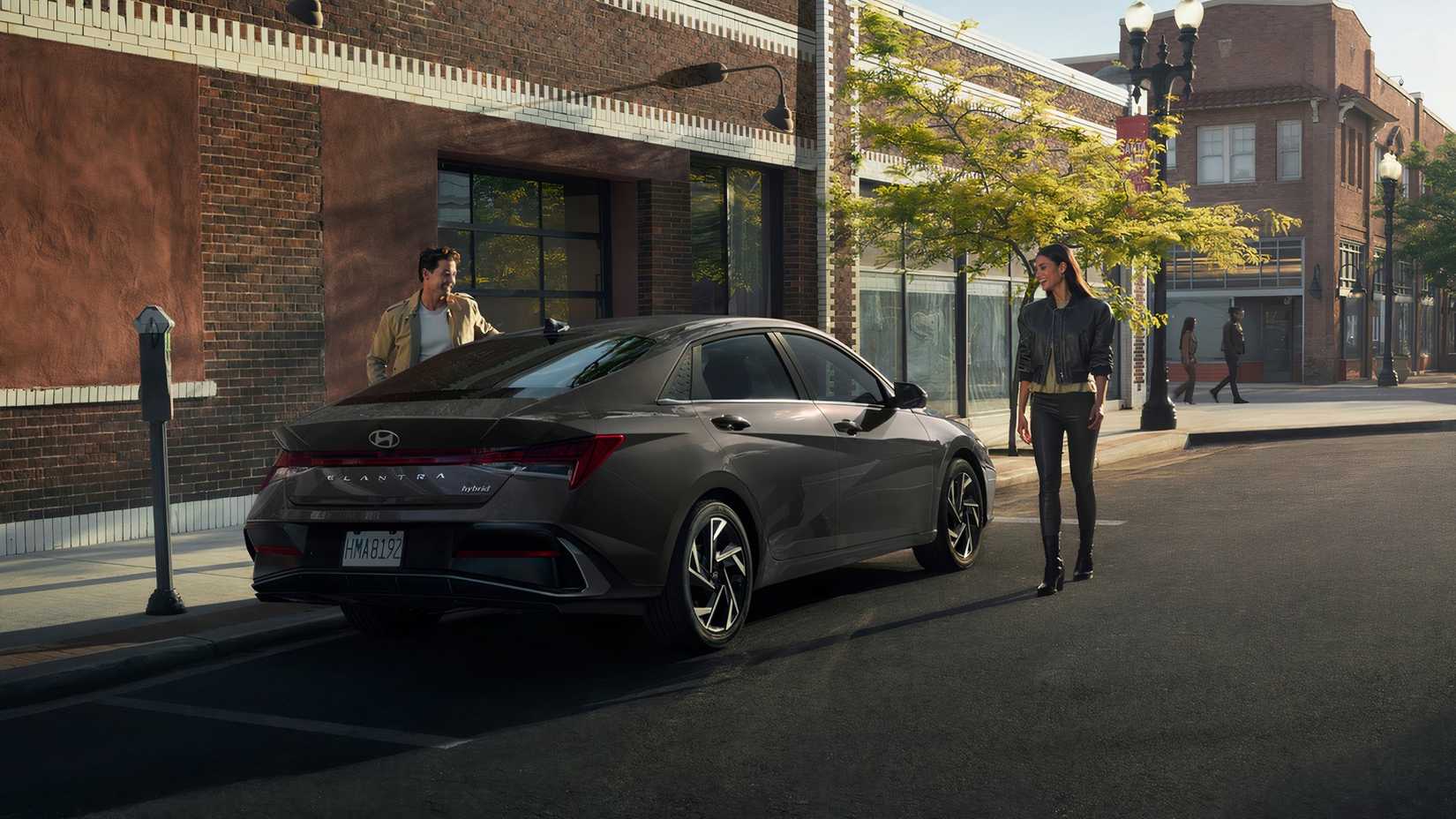
2025 Hyundai Elantra Hybrid Rear People Walking
Hyundai
In terms of overall combined efficiency, as rated by their combined EPA MPG figures, the Prius is undoubtedly the champ. Taking into account just the highway EPA figure, did you know that the most efficient sedan isn’t even from Japan? That would be the Hyundai Elantra Hybrid, whose highway fuel consumption is rated at 58 MPG. Overall, however, since it does 51 MPG in the city, its combined fuel economy figure is 54 MPG. Still impressive, considering it isn’t as curvaceous as the aerodynamic shape of the Prius.
Unsurprisingly, this also means opting for the base Blue variant, whose 16-inch wheels are good for fuel efficiency and ride quality, but not necessarily for looks. To be fair, 17-inch wheels on a compact sedan still result in an excellent ride, while its combined 50 MPG fuel economy with these wheels is still very good.
How The Prius Remained At The Top
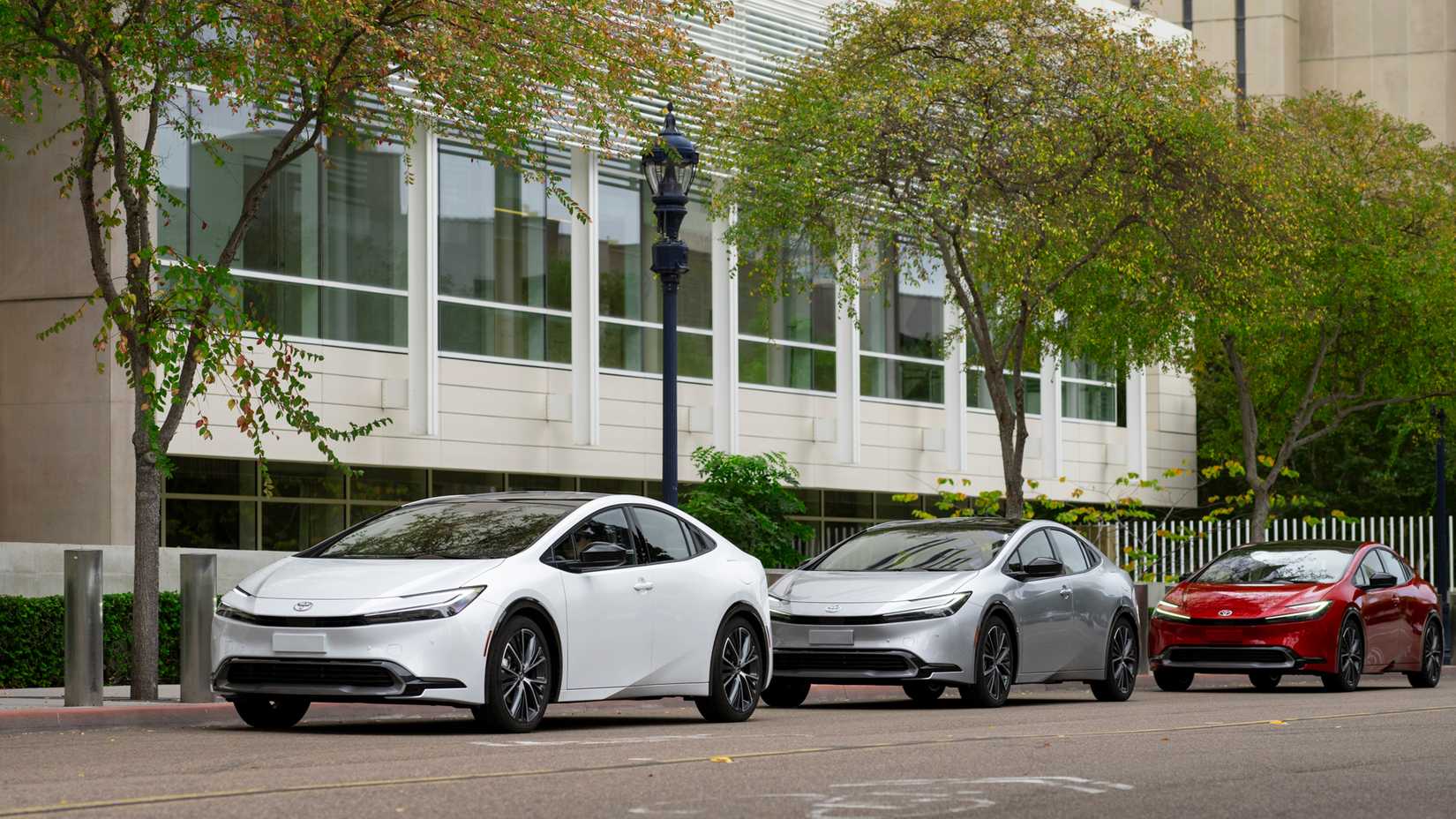
2025 Toyota Prius models lined up
Toyota
For the past decades, the Toyota Prius has remained America’s most fuel-efficient sedan, and though more efficient sedans have come and gone since its market debut in 2000, the Prius has largely remained at the top.
A More Powerful But Familiar Drivetrain
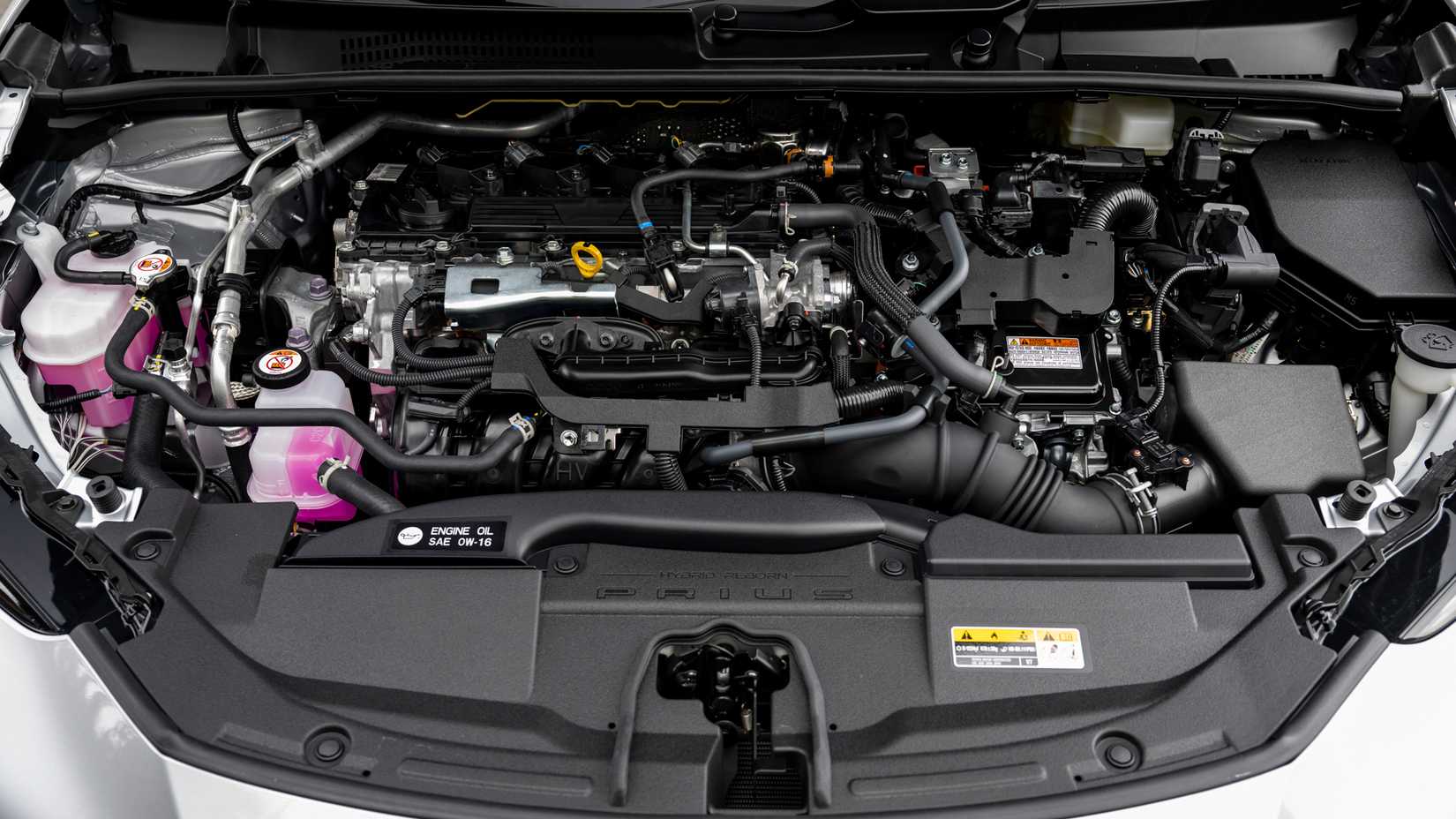
2025 Toyota Prius engine shot
Toyota
The Prius debuted the brand’s fifth-generation Toyota Hybrid System (THS V), which is characterized by an internal combustion engine (ICE) with increased thermal efficiency, a new lithium-ion battery, and more powerful electric motors. Actually, one of its biggest highlights is the jump from a 1.8-liter four-cylinder to a larger and more powerful 2.0-liter unit. As a result, its total system output significantly jumps from merely 121 horsepower in the previous model to 194 or 196 horsepower for this new model, the latter figure being for the electronic on-demand all-wheel drive (AWD) version. Though it takes a one MPG penalty versus the previous Prius Eco’s combined 58 MPG, the significant power gains far outweigh the incremental dip in fuel efficiency.
2025 Toyota Prius Performance Specs
Engine
2.0-liter four-cylinder hybrid
Drivetrain
Front engine, FWD
Front engine, AWD
Horsepower
194 hp
196 hp
Torque
N/A
Transmission
e-CVT
EPA Combined MPG
57 MPG (LE) 52 MPG (SE, XSE)
54 MPG (LE) 49 MPG (SE, XSE)
Base MSRP
$28,550
However, though this is a new, fifth-generation system, its machinery isn’t significantly different from THS IV. For instance, it still uses a planetary gear set for its “e-CVT”, which has proven to be extremely robust. The battery chemistry has changed from nickel metal hydride (NiMH) to lithium-ion, but these are all just refinements as opposed to completely reinventing THS. This, of course, also makes the Prius extremely reliable, with iSeeCars predicting that its lifespan is 175,527 miles or 12.8 years, and with a high 33.4 percent chance of going past 200,000 miles.
A Sporty Design With Efficiency Measures
And then, of course, a major contributing factor to its efficiency is also its fastback body style. With a drag coefficient of just 0.27 Cd, it is one of the most aerodynamic sedans you can buy. However, the new Prius is actually slightly less aerodynamic than the previous model’s 0.24 Cd. Guess it’s difficult to create a handsome yet aerodynamic car, huh?
Other efficiency measures that Toyota implemented in the Prius include low-rolling-resistance tires. Speaking of which, though it offers a choice of 17- or 19-inch wheels, you’ll be surprised at how slender they are. Measuring just 195 mm wide, this tire width is unprecedented for wheels that measure 17 to 19 inches. Good luck finding 195/60/R17 or 195/50/R19 tires for the Prius when you eventually replace yours in the future.
Other Japanese Hybrid Sedans To Consider
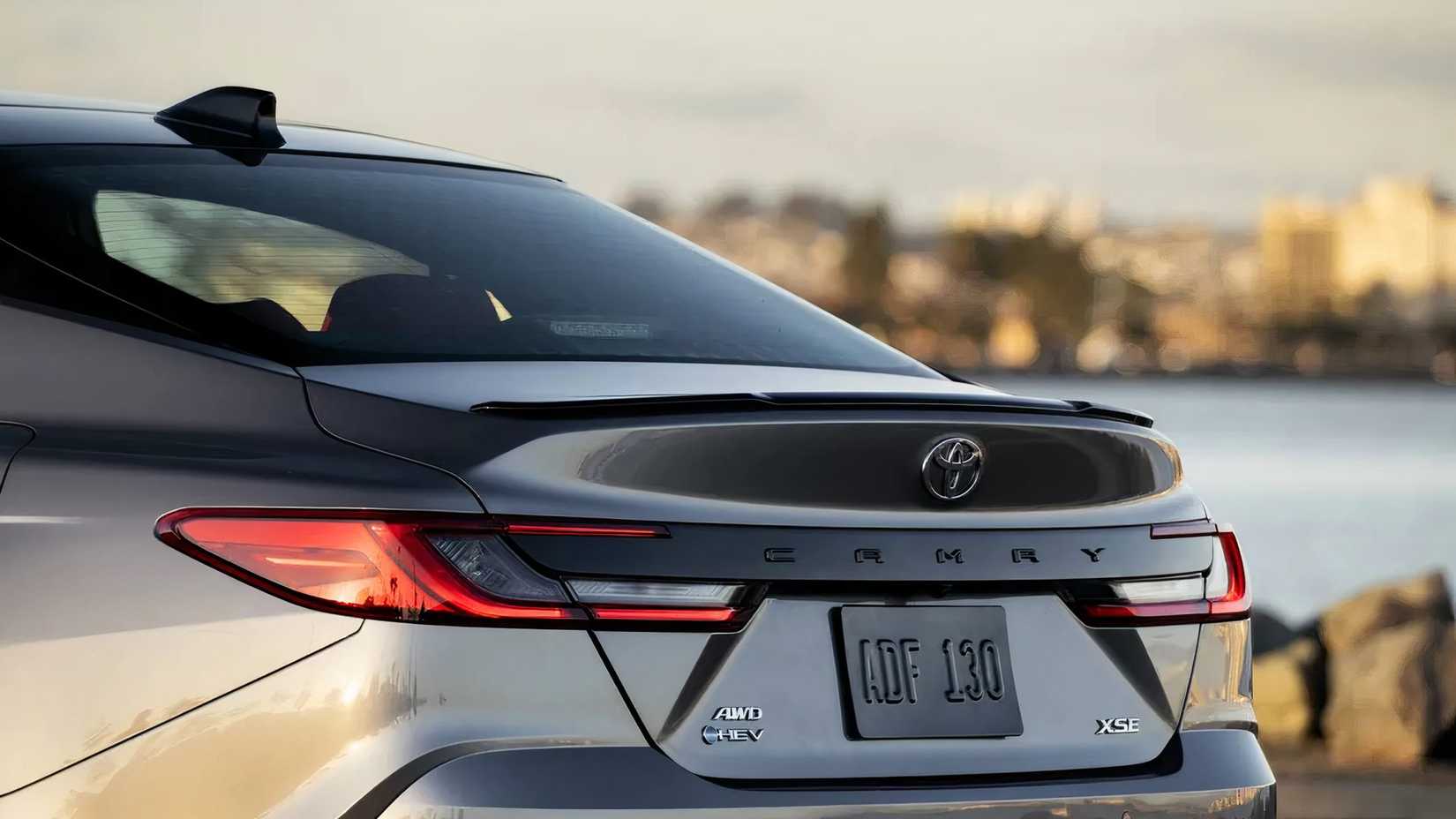
2025 Toyota Camry XSE rear shot showing badge and trunk
Toyota
A 2026 Toyota Prius starts at $28,550, and with that in mind, you’re already at a price point where other compelling Japanese hybrid sedans are also available. While they aren’t the most efficient, they offer other compelling features worth considering.
An Affordable Midsize
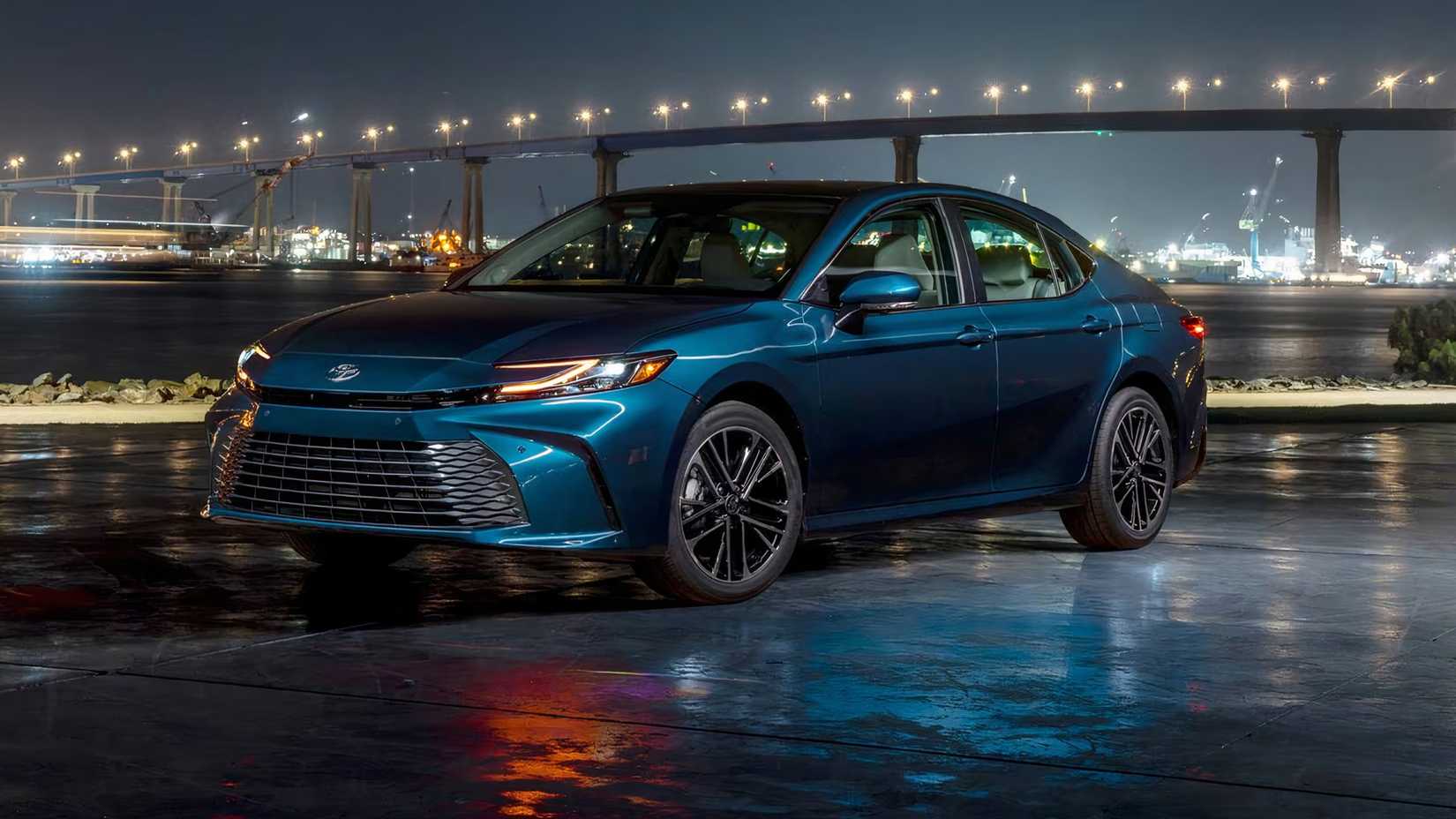
Low-angle shot of 2025 Toyota Camry XLE in blue posing in front of bridge at night.
Toyota
For just a little under $500 more, you can already get yourself a base 2026 Toyota Camry Hybrid. Granted, a Camry doesn’t stand out, since it has been America’s best-selling passenger car for two decades now, but if space is what you’re after, then there’s no question that the midsize Camry will suit your needs better. It’s also the more powerful car, too, since being a midsize hybrid sedan, it uses a 2.5-liter version of THS V. This means its hybrid powertrain inherits a few technical similarities with the Prius, such as more powerful electric motors and a lithium-ion battery.
Though at the Camry Hybrid’s base $29,000 price, it isn’t as nice as you would expect. To be fair, a base-level Prius has a similarly utilitarian feel, as both models feature cloth seats, a small digital gauge cluster, and a few other items that remind you that you’re driving a base model. On the upside, it’s still reasonably equipped with today’s modern necessities, which means that if you’re on a tight budget, you wouldn’t feel shortchanged getting a base Camry or Prius.
The Sportiest Compact Of The Bunch
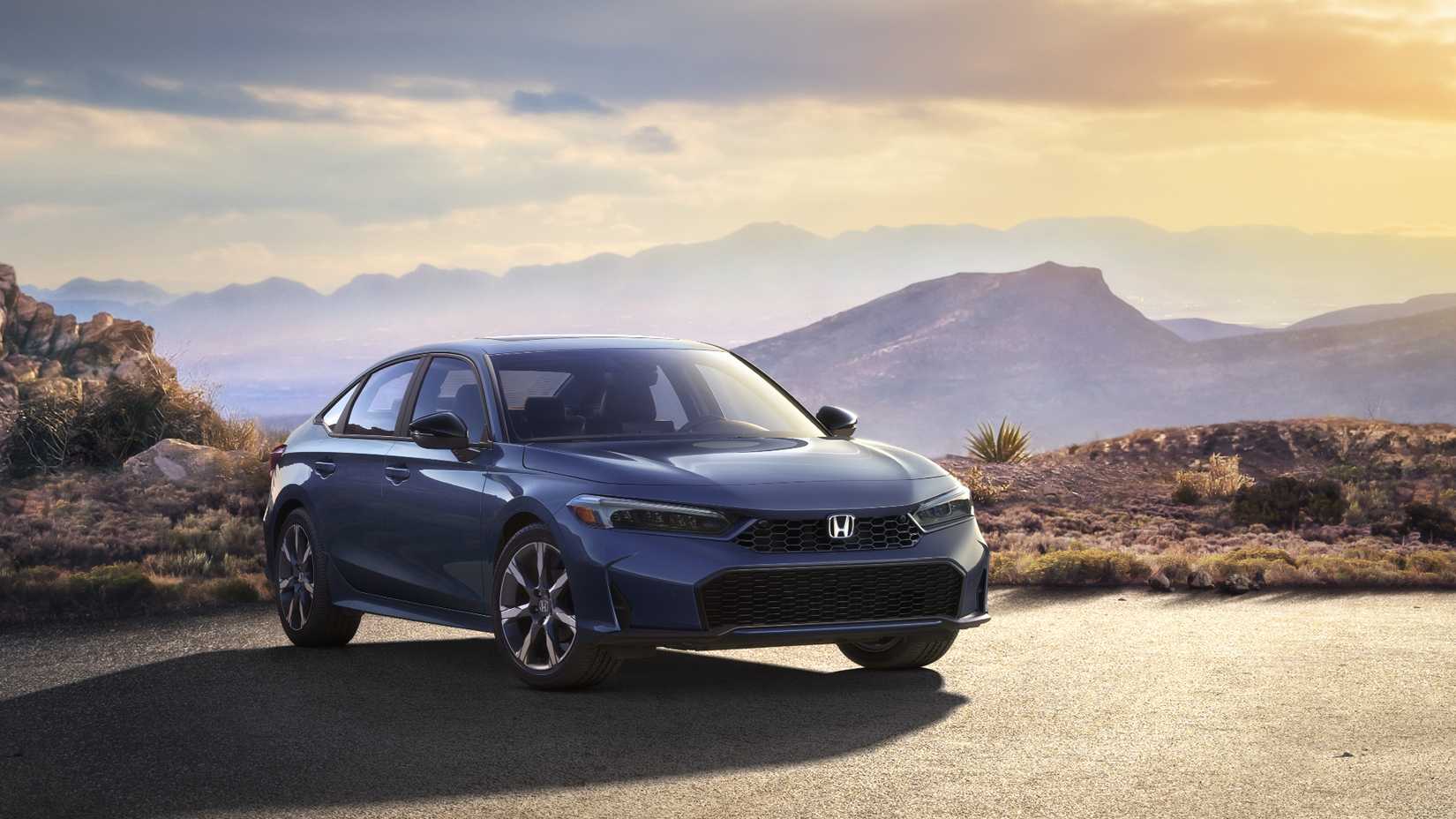
2025 Honda Civic Sedan Sport Touring Exterior
Honda
For slightly more cash, the 2026 Honda Civic Hybrid Sedan starts at $29,295. I’ve recently driven a press car of the Civic Hybrid, and oh boy, did I have so much fun with this car. Its 2.0-liter e:HEV hybrid system has a 200-horsepower system output, and an e-CVT that uses a lockup clutch versus the planetary gear set found in THS V. The result? A driving experience that’s as sporty as it is efficient.
The power delivery has been tuned linearly, with the 2.0-liter i-VTEC four-cylinder emitting quite a nice noise. This is coupled with Honda’s Linear Shift Control that adds pre-programmed simulated gear shifts that avoid the rubberband feel of Toyota’s planetary gear e-CVT. Combined with the well-judged suspension, the sharp steering with a quick-ratio, and excellent body control, the Civic Hybrid was crowned as the 2025 North American Car of the Year. It’s literally a no-compromise sedan, one that I’d recommend to anyone in a heartbeat.


AloJapan.com